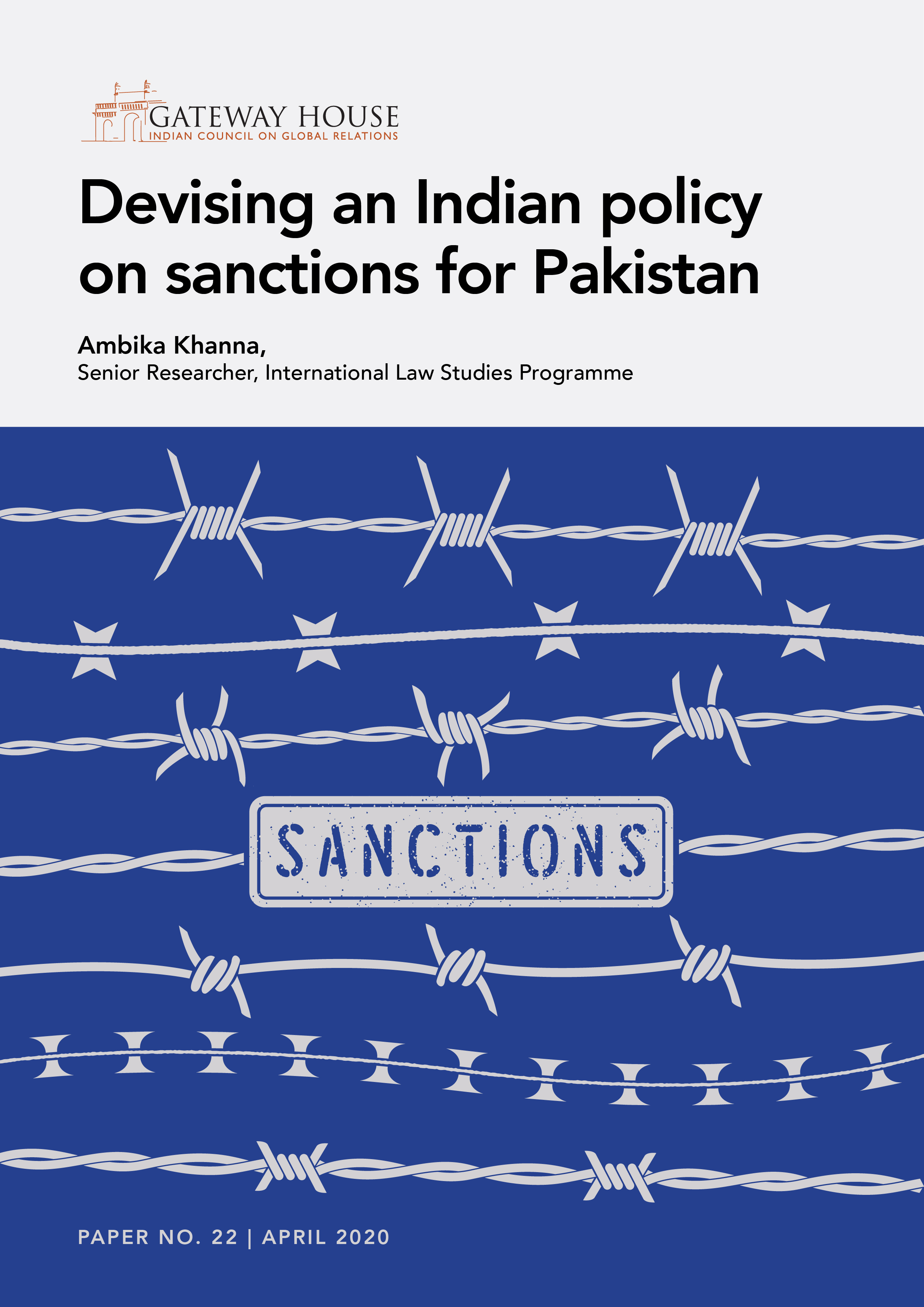Executive Summary
Sanctions have been extensively used by countries as a foreign policy tool, and by multilaterals such as the U.N. It is a means of economic warfare with the objective of coercing change in behaviour of a country, imposing restrictions or signalling power.
India as a country has been sanctioned at least twice by the US and few other countries after its nuclear tests. But it has rarely imposed sanctions on another country. A recent example of India imposing sanctions was when it withdrew the Most Favoured Nation (MFN) status granted to Pakistan after the Pulwama attack in Kashmir. Pakistan too has imposed restrictions on India, such as closing down its airspace, including for Indian VVIPs, a ban on trade with India and discontinuing postal mail, a rare measure that has commercial implications.
However, Pakistan has rarely been sanctioned, despite its having been under global scrutiny for decades particularly for supporting terror financing and harbouring terrorists including those sanctioned by the UN Security Council. The country has been placed on the precarious greylist by the Financial Action Task Force, the inter-governmental global money laundering and terrorist financing watchdog. It is expected to comply with measures that counter money laundering, terrorist financing, and proliferation financing, but has still not been blacklisted despite several warnings. The country has powerful patrons like China, and till recently, the United States.
Therefore, though Pakistan is a continuous threat to India’s national security, foreign policy and economy, it has escaped being sanctioned. In the wake of the attack in Pulwama in February 2019, there are pressures on India to toughen its sanctions regime and consider imposing sanctions on Pakistan.
This paper analyses the feasibility of India imposing sanctions on Pakistan. The paper studies the increased entrenchment of the military’s business interests and investments in the Pakistani economy, and how sanctions can impact them. It delves into India’s current legal framework and compares the regulatory process on sanctions followed by other countries. It explores the loopholes in the extant law and gives recommendations on establishing a strong legal framework on sanctions.
More broadly, the paper also analyses the efficacy of sanctions and their impact on both, the sanctioned and the sanctioning country. This is especially critical as there are no international norms that govern unilateral sanctions. The paper suggest ways in which India can impose sanctions by controlling its own stakeholders including individuals and entities.
Finally, using India’s own experience of being subjected to sanctions and the experience of other countries, this paper recommends a multi-pronged approach to sanctioning a country, rather than imposing sanctions in part or in silos. The multi-pronged strategy includes a significant role for the diplomatic community, in addition to seeking support from other nations.
You can download the PDF version of this paper here.
Ambika Khanna is Senior Researcher, International Law Studies Programme, Gateway House.
This paper was exclusively written by Gateway House: Indian Council on Global Relations. You can read exclusive content here.
For interview requests with the author, please contact outreach@gatewayhouse.in.
© Copyright 2020 Gateway House: Indian Council on Global Relations. All rights reserved. Any unauthorized copying or reproduction is strictly prohibited.



